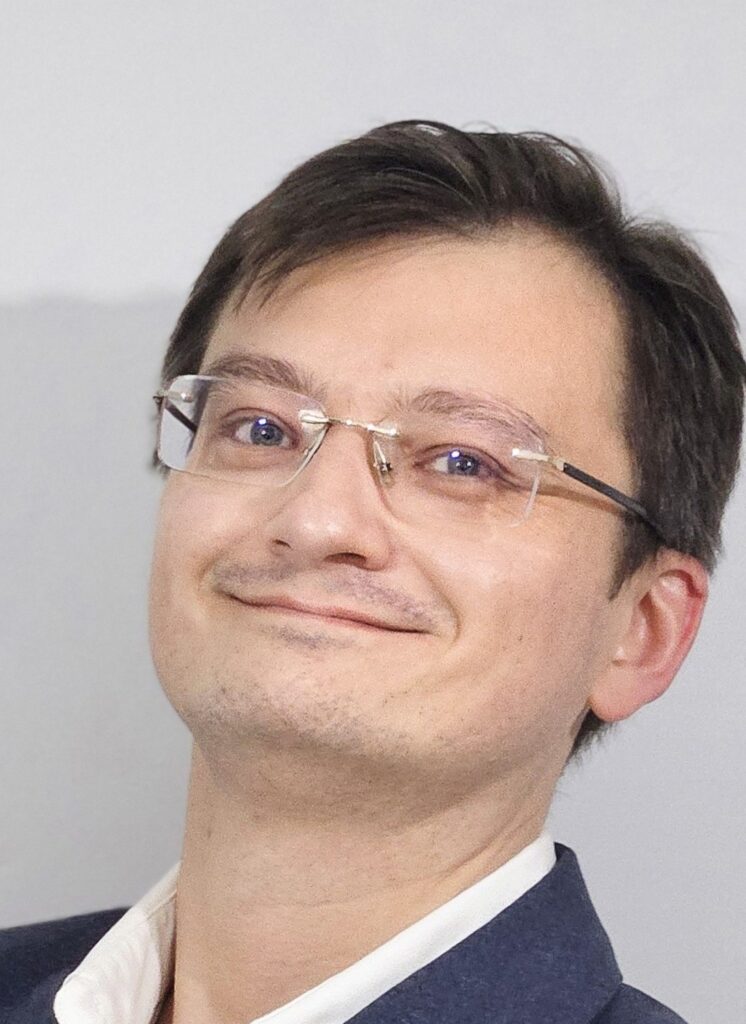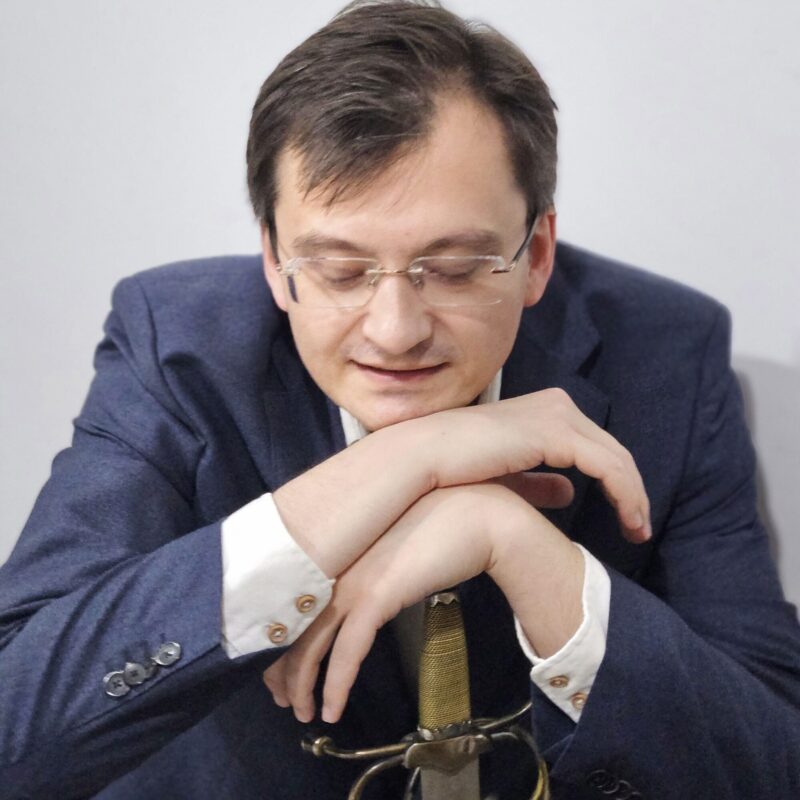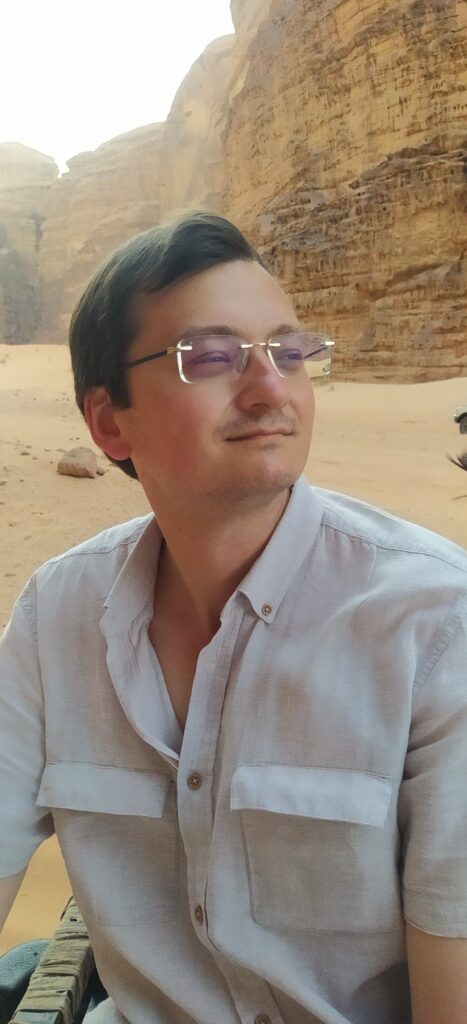I was born in 1983, the son of polyglot parents, of whom one was a graduate of Hebrew studies and the other an artist. From early childhood, my interests included foreign languages (such as German, which I am no longer conversant in), Polish, history and, gradually, law. At the middle tier of education, I completed a classical curriculum (Latin, Greek and classical studies, in addition to English and French) and passed the entry examinations for both classical studies and archaeology at university (as well as English studies) but decided to go to law school instead. And yet, after graduation, I only worked as a junior associate for a little short of two years before becoming a translator rather than practicing lawyer. This despite remaining at the university for a Ph.D. course in jurisprudence, which I ultimately also completed, though without taking the degree. It has been sixteen years in translation now (since 2009), not counting the translation tasks I had done as a lawyer in the making.
During these years, I have translated thousands of pages’ — millions of words’ — worth of text in all manner of areas of law (including historical and non-European systems, as well as history, theory and philosophy of law), as well as fields and forms, stages and aspects of business activity, as well as academic, religious and other texts, sometimes unrelated to law, seeing myself as a proper translator, not just an outsider translating. Still, my legal specialization as a translator, at least for Polish-English and English-Polish is one of the strongest in the entire profession, despite my relatively young age at 41 (translators are sometimes jokingly considered to be in training until they hit the 50 mark).
Were I not a translator (not ‘linguist’, mind you), I would probably be a lawyer, although complete certainty in such matters is rarely possible. A return to legal practice — probably alongside continued translation practice, so combining the two professions — could be difficult to pull off in practical terms, similarly to a certain naval aviator who desired once again to fly and achieved that but realized his original future (before the partial blinding) was no longer in existence. After more than a dozen years outside of the original job line, some things are just no longer the same, even if the talent and the zest is still there (I wrote and argued quite well, if I may say so).
In the distant past, I also taught languages, coded, manned the news section for a gaming portal and managed some other websites and communities. All this affects my outlook and perspective, for example by making me inclined to view contracts as something akin to computer programs (they are, after all, algorithms).
One of such formative moments leaving a lasting mark was one of my multiple courses in mediation and negotiation, in which both parties to a mock negotiation received instructions and context materials from which it occurred that two pharma companies apparently both needing 2000 banas of a species yielding that exact size of crop p.a. from the world’s sole supplier actually needed one the skins, the other the flesh. (So you could not only keep both happy but also establish useful cost-saving synergies in the production process and build a mutually rewarding relationship.) Things aren’t much different with the old question of whether a translation should be faithful or beautiful — it can be both, depending on how much time, skill and effort you invest. So this is my niche — to invest so much as to make the impossible possible.
My personality traits include an analytical, strategic mind that absorbs knowledge from the environment like a sponge and is also eager to learn in more formal ways, not only the left-brained but also the right-brained stuff, connecting the dots, reconstructing systems and building models; both distilling the essence of the question and exploring all details and nuances of it thoroughly. I am not an absolute perfectionist, appreciating the point of (highly) diminished returns between 95% and 99% or 99% and 100%, but still more of a perfectionist than the average person. In terms of Gallup’s ‘strenghts’, this means: 1. Input, 2. Achiever, 3. Ideation, 4. Intellection, 5. Learner, 6. Strategic, 7. Belief, 8. Maximizer, 9. Connectedness, 10. Competitive. According to Builder Profile (BP10), the sister test for managers and startup owners, my general profile is that of an expert, with talents ranked 1. Disruptor, 2. Knowledge, 3. Selling, 4. Independence. This would be pretty accurate.
Outside of work, I like to travel. I have visited Italy, France, Germany, Switzerland, Spain, Croatia, Greece, Turkey, Cyprus, Israel, Jordan and Morocco. I like good coffee, and my own brew tastes one of the best — at least to me. I never buy the same grain twice.
Having focused exclusively on work in the last couple of years of my life and becoming a bit too consumed by it, I am now working on restoring some healthy work-and-life balance. Paradoxically, however, for this to be a possibility, I must first put my professional life in order, and this means good clients appreciate of the high quality of translation provided by a highly educated and hard-working professional, in a contradistinction to the dominant market mood of ‘more, cheaper, faster’ (even losing sight of ‘better’ at some point in the process, known as ‘race to the bottom’ among translators). Out of ‘good, fast and cheap’, I can give two, even two and a half, but not three. Working more sustainably, I can provide better value for those clients who appreciate it.





